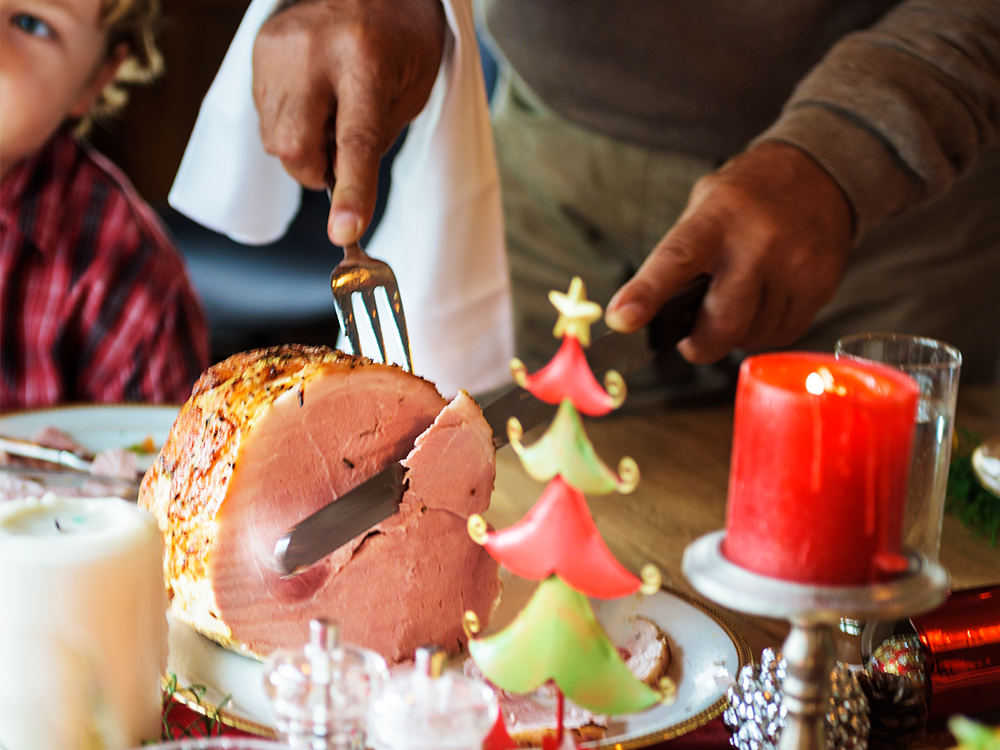Remembering Self-Care During the Holidays
The holidays can be a stressful time with buying gifts, planning for gatherings and having a busier-than-usual social calendar.
Remembering to take care of yourself can be difficult, but it’s important to maintain your physical, mental, emotional and financial health during this season.
Here are some tips from UT Dallas experts to help keep your self-care in check.

Enjoying the Season Without a Jolly Weight Gain
Holiday parties can be a land mine if you’re trying to eat healthy.
Studies show that during the holiday season from mid-October through mid-January, Americans will gain an average of 16 pounds. How can you navigate the social gatherings and abundance of food and spirits without becoming a statistic?
Having a plan in place will help you handle celebrations centered on food, said Taylor Tran, registered dietitian and employee health program manager.
Minimize temptations. Eat a meal before the party to curb cravings that may lead to overdoing on snacks and appetizers. Offer to bring a healthy dish. If you’re hosting, have disposable containers available for guests to take home leftovers. At work, limit time in break rooms where high-calorie foods tend to linger.
Plate well. Use smaller plates and limit trips to the buffet line. Choose lean meats, steamed vegetables or salad, and skip high-calorie appetizers and sides. If you want dessert, put it on the same plate as the rest of your food so there is only room for a small slice of pie or cake. Eat slowly and mindfully; savor the food.
Limit empty calories. Don’t let the liquid calories sneak up on you. Eggnog, hot cocoa, peppermint drinks and cocktails have a lot of sugars and calories – and they’re not filling! Alcohol consumption also may lower inhibitions and prompt overeating. Stay hydrated with water, low-calorie beverages or “skinny” cocktails.
“Enjoy your time with family and friends, and don’t make food the focus of gatherings,” Tran said. “Socialize away from the table. Gather family and friends for a walk to see holiday lights, go window-shopping at the mall, or play games like flag football, charades or horseshoes. Staying active helps counter a few extra holiday calories.”

Managing Financial Stress
The first step of managing financial stress during the holidays is easy, says finance clinical professor David Cordell: Accept the obvious.
“You are not Santa Claus with an infinite capacity to shower people with gifts,” he says.
Cordell offers some tips for maintaining financial health during the holiday season.
Create a budget. You don’t have to specify exact amounts for everyone, but calculate an average or set spending limits. For example, you may limit gifts to friends to a range of $10 to $20. Remember that if you have a strict budget, an extra dollar spent on one recipient means one dollar less to another recipient.
Plan ahead. If you are determined to spend more than you have, calculate an amount that you can pay off in, for example, three months. For the rest of next year, start saving for the following Christmas. If you charge $1,000 on a credit card with an 18 percent rate and pay it off in 3 months, you will pay about $30 in interest. If you stretch the payment period to 12 months, you will pay over $100 in interest.
Shop smart. If you have more time than money, help control expenses by shopping more carefully for your purchases. Start now.
“Last minute shopping is often associated with overspending because there isn’t enough time to be selective and because we become anxious to just get it over with. We may even feel guilty at not being more thoughtful and subconsciously overspend to make up for it.”
Avoid spontaneous purchases. If you follow the Black Friday crowd, don’t be tempted to buy something just because it catches your fancy. Even if you buy from local retailers, invest some time online to identify what you intend to buy. It will help you create more focus in your shopping. Look for newspaper ads and make an actual list of specific gifts before you leave home. Your mission is to buy those specific gifts. If you vary from your plan, make sure you have a good reason.
“Remember, thoughtful gifts often don’t cost much,” Cordell said. “For about a decade, my wife’s Aunt Gladys gave me a tin of her homemade fudge every Christmas. I received lots of more expensive gifts during that time, but none of them were as memorable as Aunt Gladys’ fudge.”



